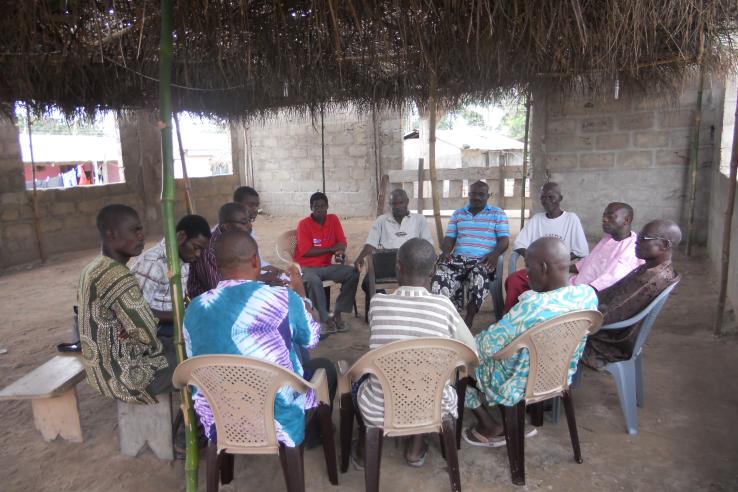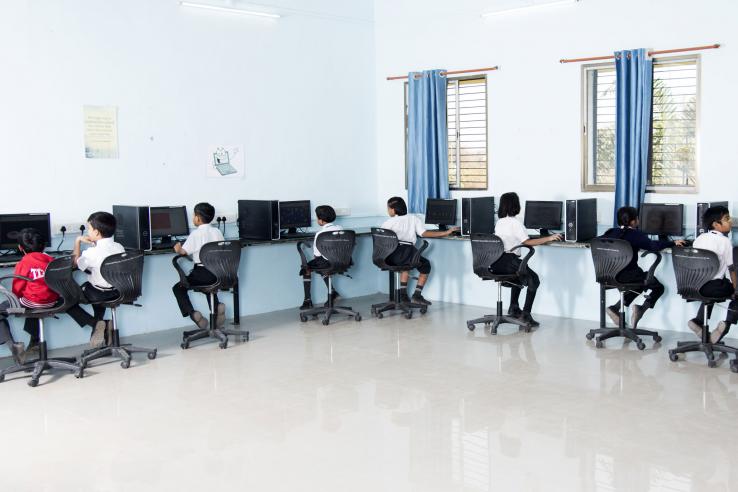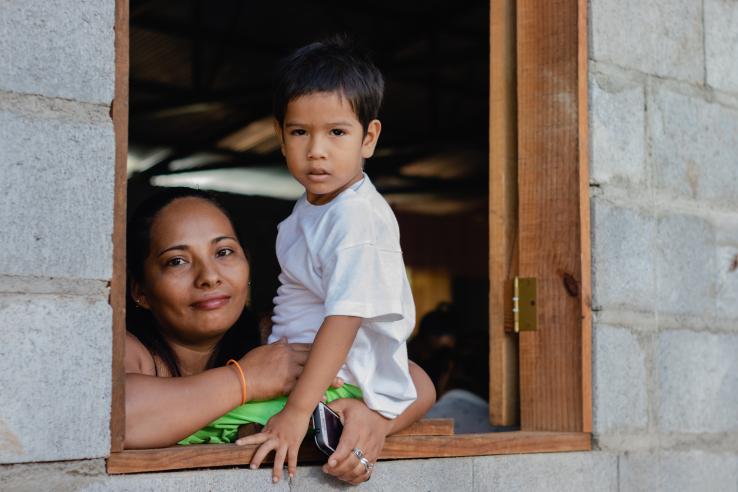Displaying 4501 - 4515 of 8489
Evaluation
Researchers in Ghana evaluated the impact of community-led assessments on health insurance enrollment as well as healthcare and health insurance quality. The community engagement intervention improved the medical quality of healthcare, reduced community members’ chances of getting sick, and increased health insurance enrollment among previously uninsured people.
Evaluation
Researchers evaluated the academic impact of a “Cadillac” OST program in Washington, DC. Researchers found that the program increased students’ problem-solving and reading comprehension scores after two years.
Evaluation
In Mexico, researchers are testing whether this lagging productivity could be due to lower managerial capacity. They found that providing subsidized managerial consulting to Mexican SMEs boosted their productivity and hiring.
Evaluation
In Western Kenya, researchers evaluated the impact of two preventive approaches—community-based testing and free condom provision—on behavioral and biological outcomes. Neither community-based testing, free condoms, nor these interventions offered together reduced the prevalence of sexually transmitted infections or risky sexual behaviors among youth.
Evaluation
Researchers in India attempted to measure the impact of a daily Computer Assisted Learning program on student test scores when delivered as either a substitute for or supplement to the status quo curriculum (delivered during or after school, respectively). While the program improved math scores for students when delivered as a supplement, it actually had a negative impact on math scores when delivered as a substitute for the status quo curriculum.
Evaluation
Researchers in Kenya issued a questionnaire to firms which may have made lost sales and profits due to poor change management became more salient. A second intervention more explicitly emphasized the costs of having insufficient change. Highlighting the importance of carrying correct change helped firms to change their behavior and increase profits.
Evaluation
In Nicaragua, researchers compared the cognitive and health outcomes of boys whose families received conditional cash transfers in the first three years of their lives to those who received the transfers later. Exposing boys to the program during the first 1,000 days of life led to better cognitive, though not physical, outcomes seven years after the transfers stopped, relative to boys who received transfers slightly later in their lives.
Evaluation
Researchers conducted a randomized evaluation to determine the impact of job matching, job training, and counseling programs on youth employment in Egypt. The job training programs improved labor market outcomes such as employment, particularly for women. However, the intervention did not have a significant impact on non-labor market outcomes in the short term.
Evaluation
Researchers partnered with the National Confederation of Municipalities (CNM) in Brazil to evaluate the impact of access to research results on policymakers’ demand for research findings and interest in adopting evidence-informed policies. Policymakers were willing to pay for research findings and subsequently updated their beliefs. Those who were invited to an information session on a simple, evidence-informed policy to increase tax compliance were more likely to implement that policy within the next two years.
Evaluation
In many societies facing violent conflict, policymakers have attempted a number of strategies to reduce conflict and generate support for peace initiatives, but rarely consider the role that exposure to financial markets can play in mitigating social conflict. Researchers evaluated the impacts of increased exposure to financial markets on the political attitudes and voting preferences of voters in Israel. Results suggest that exposure to financial markets changed voters’ perception of the costs of conflict and their attitudes toward peace processes.
Evaluation
Researchers evaluated the impact of encouraging citizen monitoring on the 2019 mayoral elections in Colombia. The intervention resulted in higher reports from citizens and a reduction in observed irregularities in the election.
Evaluation
To promote export diversification, the Tunisian government is implementing a $22 million export matching-grant scheme, TASDIR+. TASDIR+ aims to increase exports and promote export diversification toward higher value-added exports and new markets. This study is using a randomized controlled trial to evaluate TASDIR+’s traditional matching grant scheme and a newly implemented rebate scheme.
Evaluation
Researchers studied the impact of physician training on the cost and quality of care in a large hospital that randomly allocated patients to teams of physicians from residency programs affiliated with one of two different medical schools. Costs for patients treated by physicians affiliated with the higher-ranked medical school were 10 percent lower than for patients treated by physicians affiliated with the lower-ranked medical school, largely due to less extensive and more prompt ordering of diagnostic tests. Despite the difference in cost, patients treated by physician teams from the different residency programs had similar health outcomes.
Evaluation
Researchers conducted a randomized controlled trial to study the impact of improved communication and low-cost behaviorally informed “nudges” on Medicaid take-up. The low-cost interventions significantly increased enrollment.
Evaluation
In an ongoing study, researchers are testing whether a subsidized employment program for low-income adults with less than a high school degree in Michigan can improve employment opportunities and earnings while reducing public benefit receipt.













